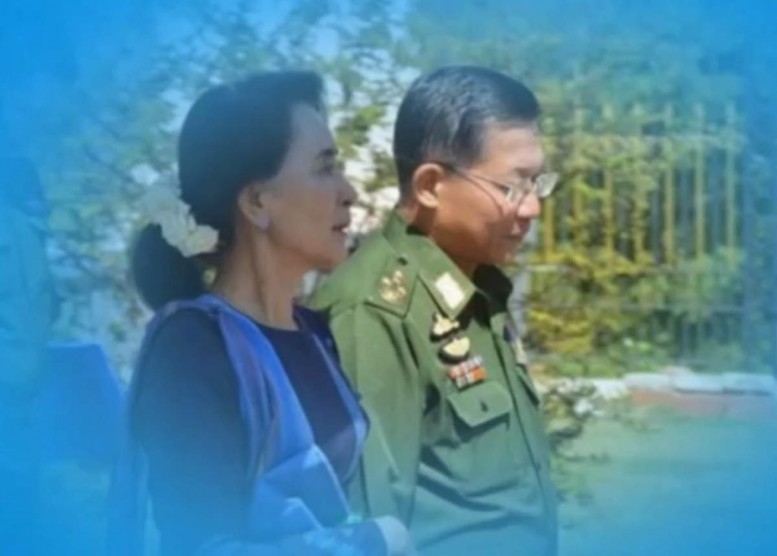Thirteen political parties, including the former ruling Union Solidarity and Development Party (USDP), have called on the National Defence and Security Council (NDSC) to intervene in dealing with Burma’s current crises.
A joint-statement signed by the parties on Monday blamed the government, led by Aung San Suu Kyi’s National League for Democracy (NLD), accusing it of incompetence in dealing with the various crises the nation is facing, citing foremost the violence in Arakan State involving security forces and suspected Rohingya militants; a spate of bombings in Rangoon; a surge in crime; and economic woes.
The 28 November statement urged the NDSC to intervene in the situation as per its responsibilities outlined in the 2008 Constitution*.
“The issues the Tatmadaw [Burmese armed forces] has to deal with militarily are growing every day, and we conclude that there is a systematic plan by domestic and overseas elements to cripple the nation’s defences along the border regions,” said the statement.
“Meanwhile, the ruling government’s way of handling the matter is pushing the country towards a deeper crisis.”
The 13 parties – which include two breakaway groups from the ruling NLD: the National Democratic Force and the New National Democracy Party – called on the NDSC to hold an emergency meeting to help the country make “the right decisions” in affairs of national security and economy.
It further called for measures to “effectively counter domestic and overseas threats”, and stressed that now is the time for the NLD government to “show some courage” and tell the international community that the conflicts in western and northern Burma were connected to terrorist organisations with international connections.
Thu Wai, the chairman of the Democratic Party Myanmar, was among the signatories of the statement. He said, “Judging on the conflicts in Arakan State and northern Burma, we can conclude that there is a lot of outside interference. They have a systematic plan and, from what we see, the government is unable to do anything when these outside influences grow.
“The [NDSC] needs to stop this from happening,” he concluded.
[related]
The NDSG is a somewhat untested force in Burma’s body politic, although it officially ranks as the highest authority within the government, and assumes responsibility for security and defence affairs.
It is made up of 11 members: the president (Htin Kyaw, NLD); the two vice-presidents (Myint Swe, USDP, and Henry Van Thio, NLD); the speakers of the upper and lower houses (Win Myint, NLD, and Mahn Win Khaing Than, NLD); the minister of foreign affairs (Aung San Suu Kyi, NLD); the commander-in-chief (Snr-Gen Min Aung Hlaing); deputy-commander-in-chief (Gen. Soe Win); the minister of defence (former Lt-Gen Sein Win); the minister for home affairs (Lt-Gen Kyaw Swe); and the minister for border affairs (Lt-Gen Ye Aung).
* Article-340 of 2008 Constitution: “With the approval of the National Defence and Security Council, the Defence Services has the authority to administer the participation of the entire people in the Security and Defence of the Union. The strategy of the people’s militia shall be carried out under the leadership of the Defence Services.”



